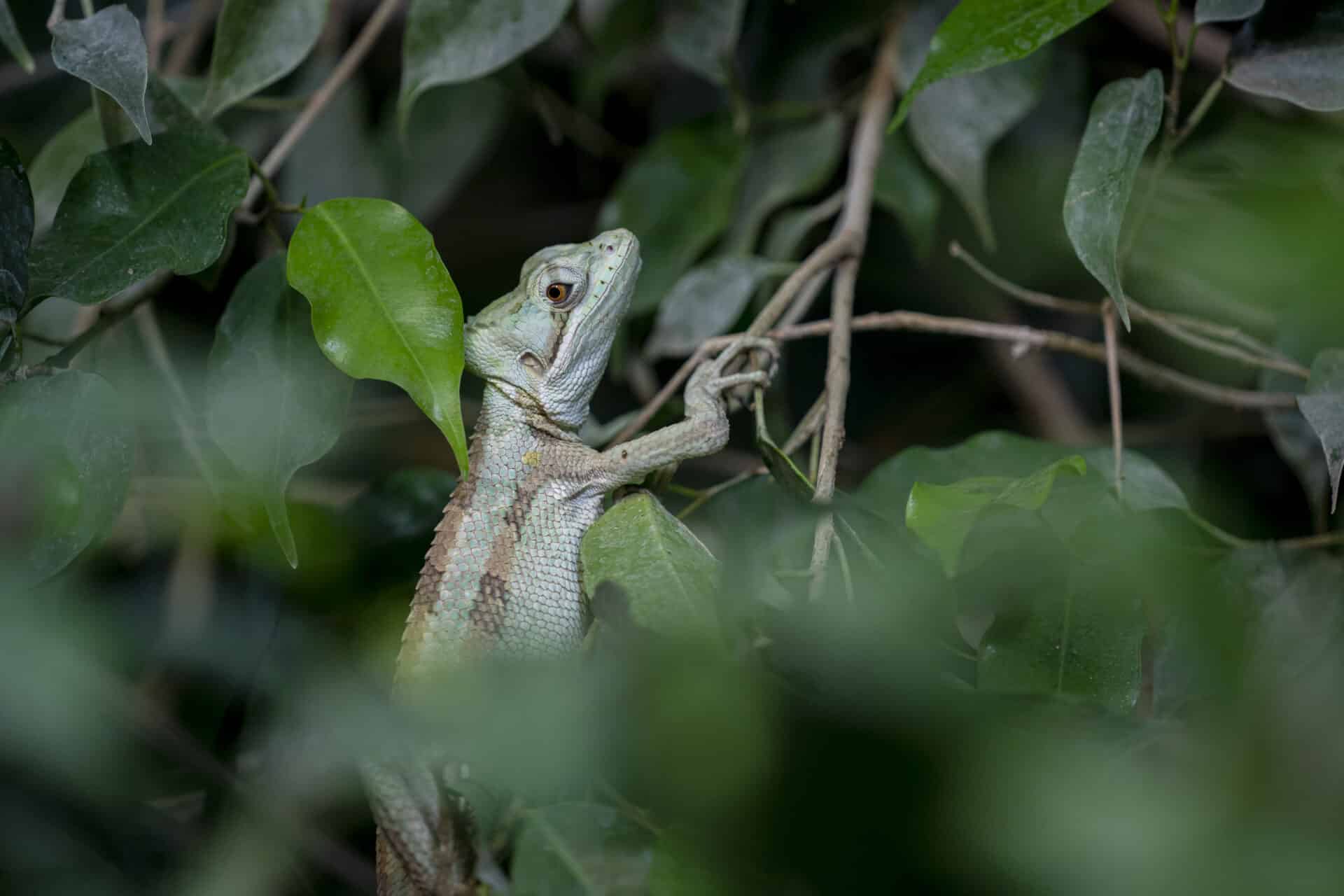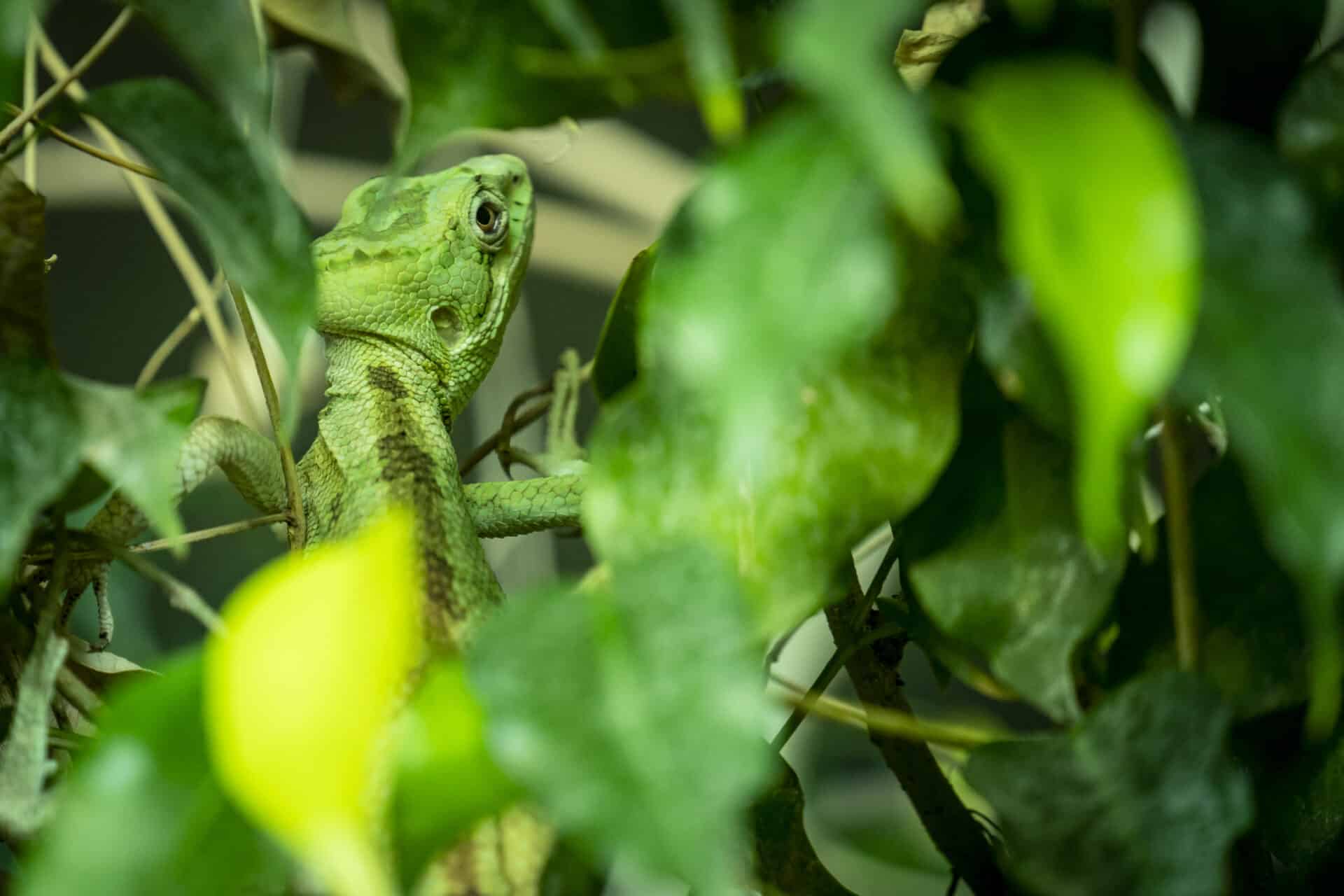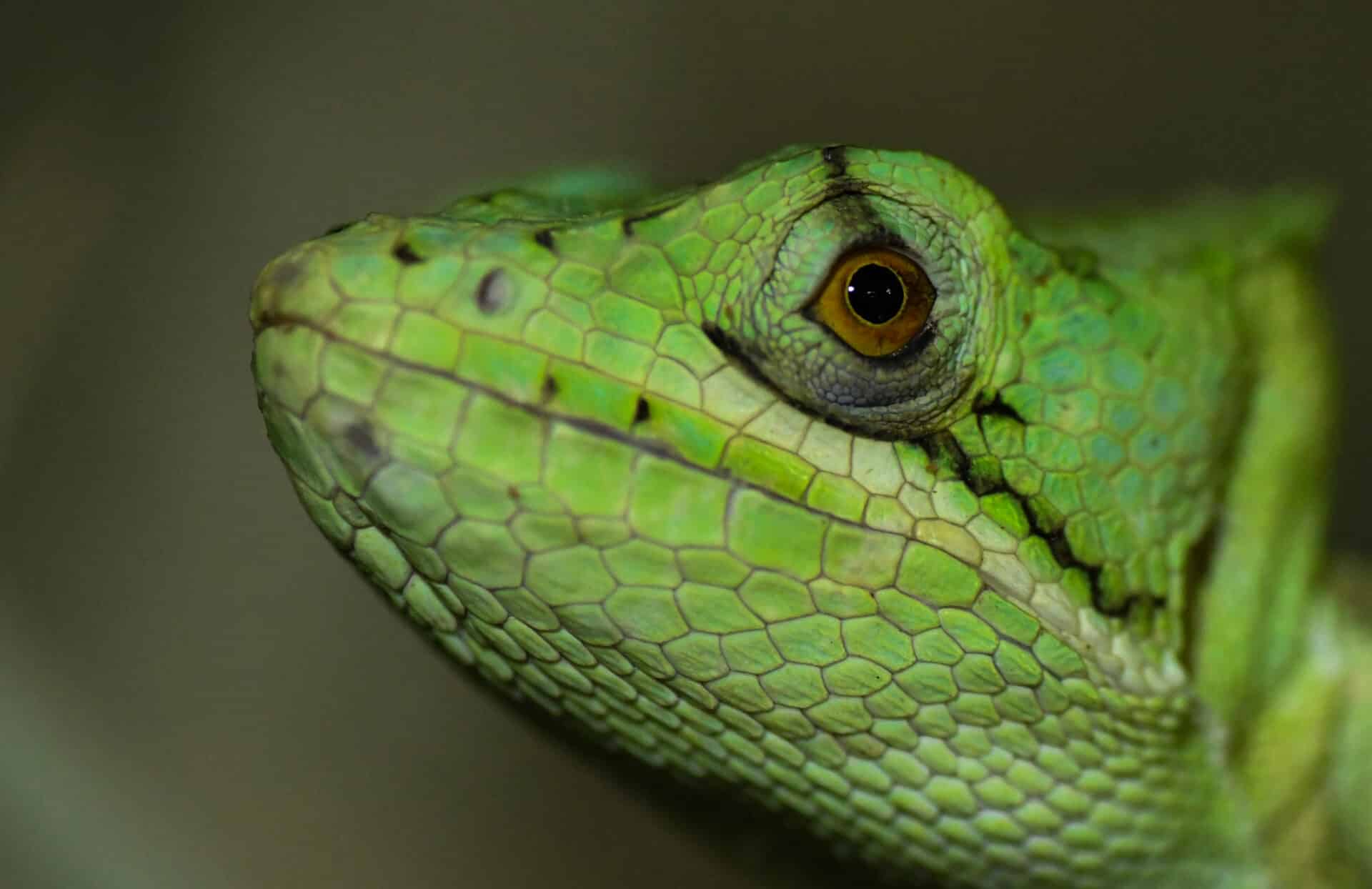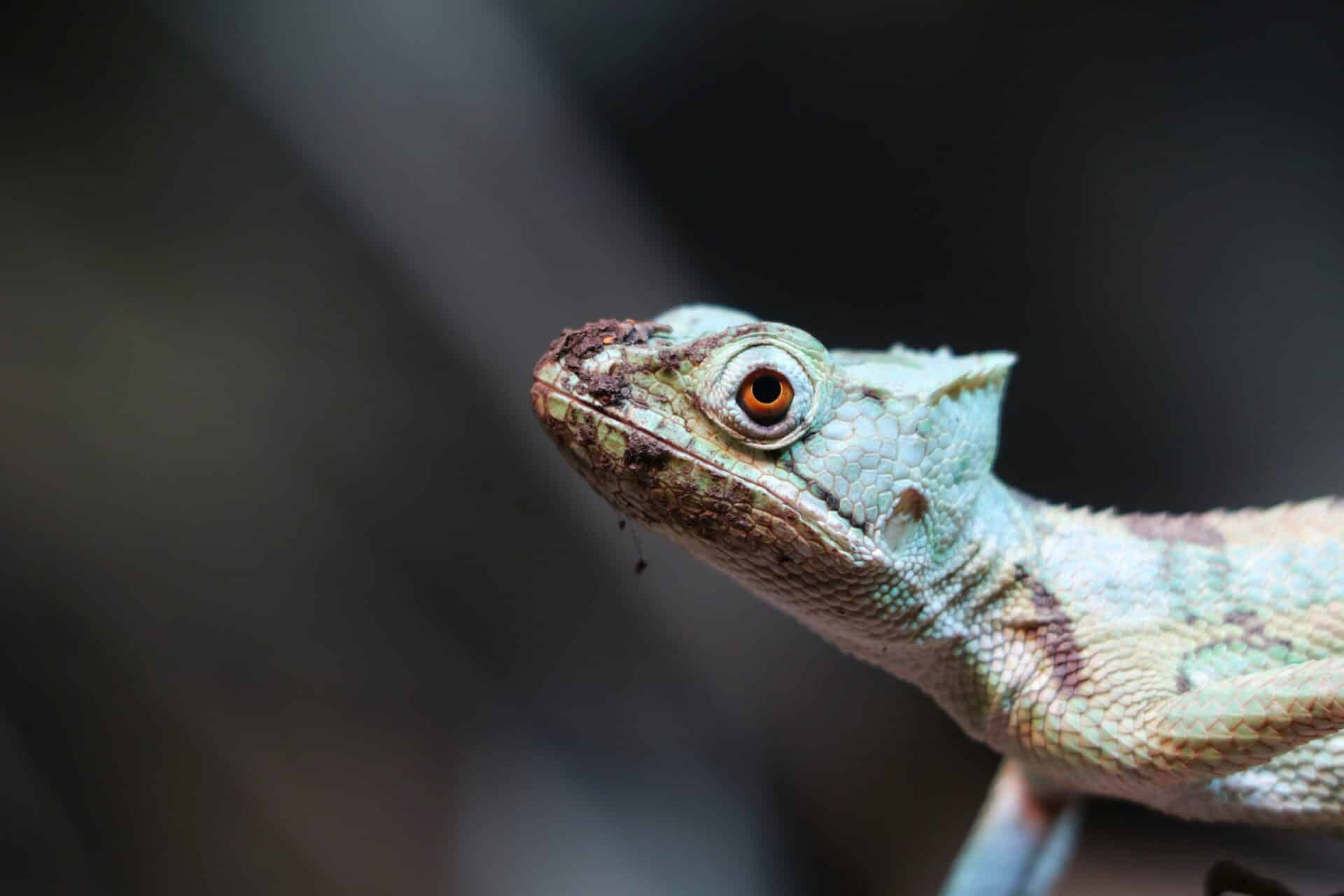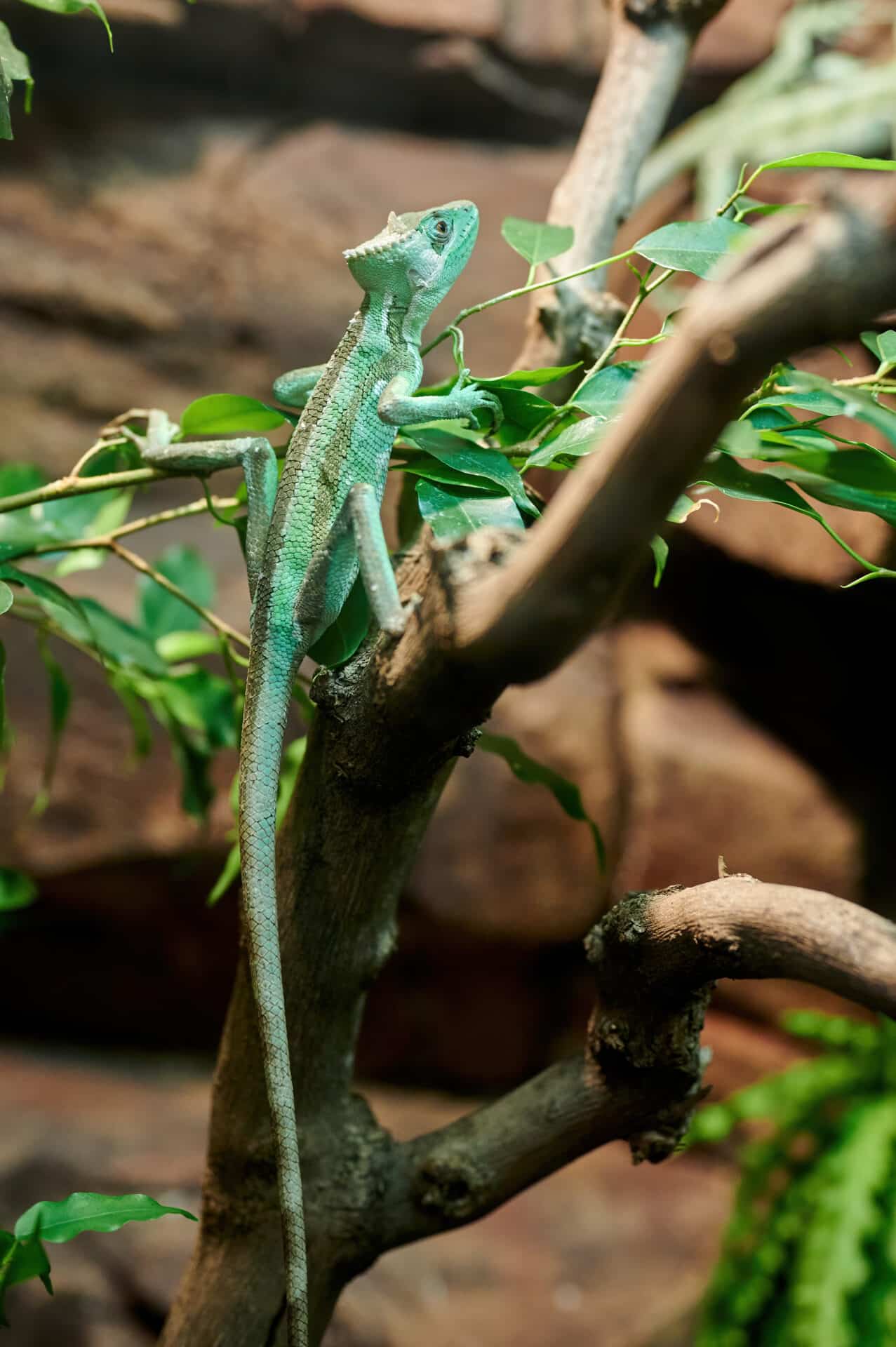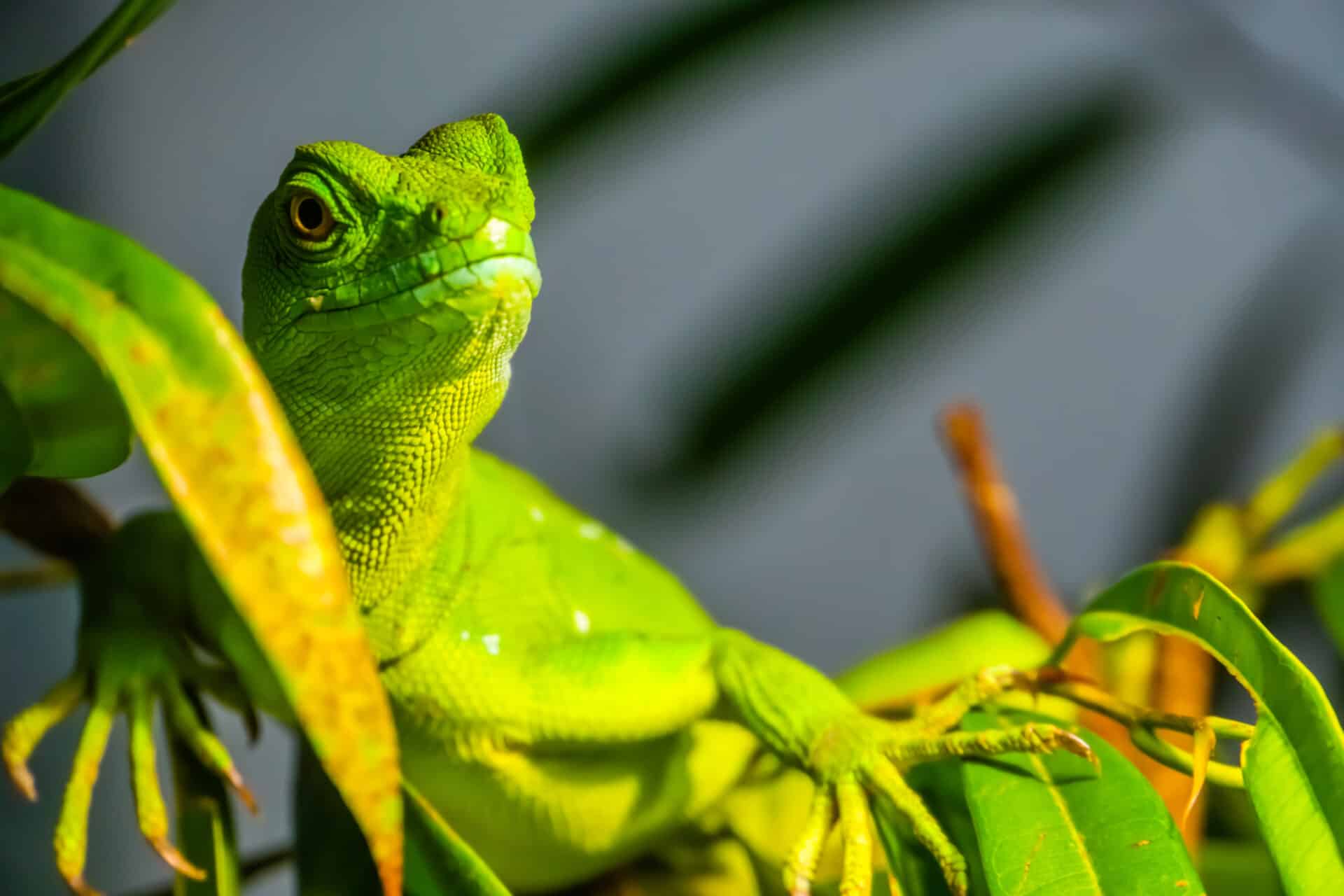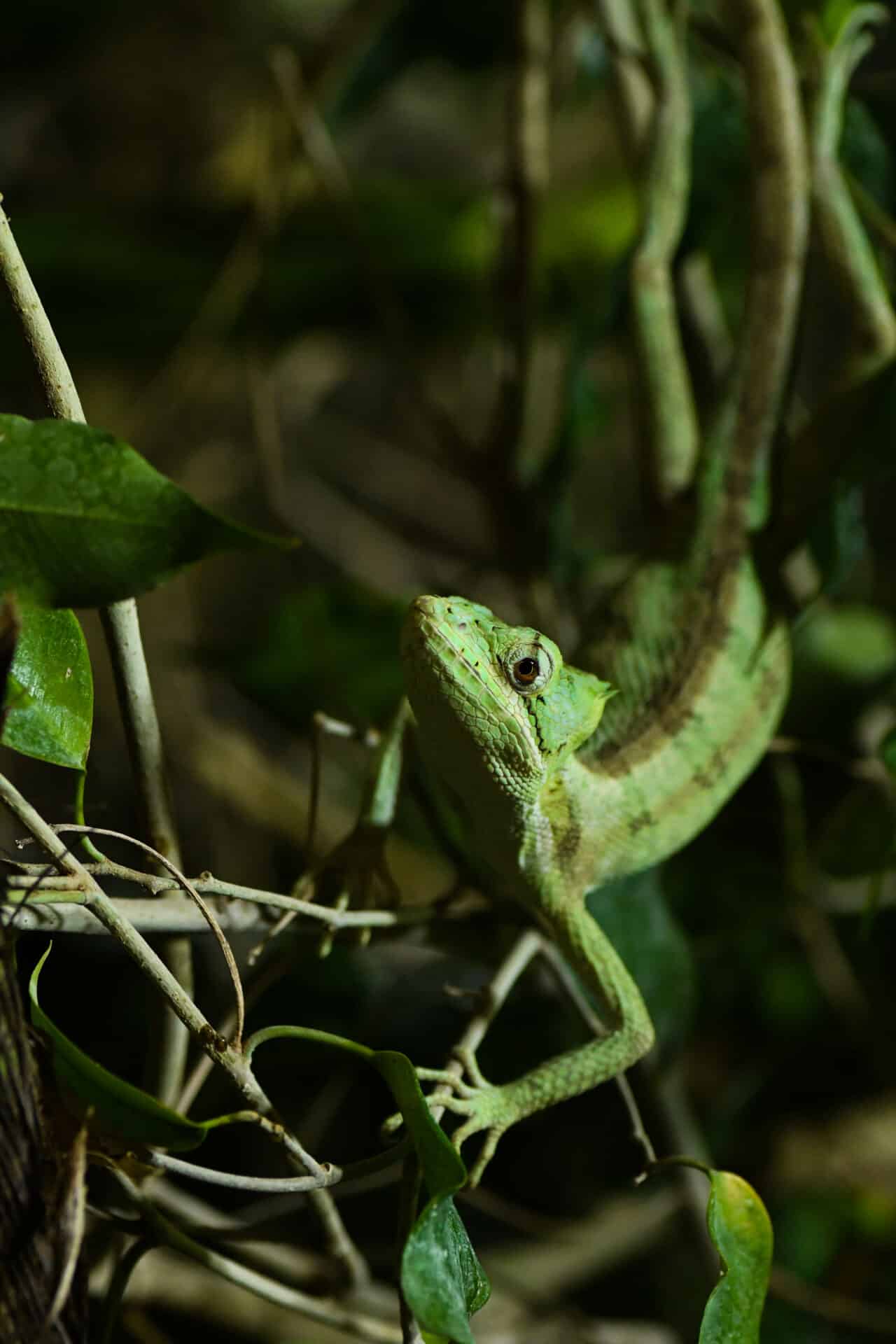Casque-headed iguana
Common Name: Casque-headed iguana
Scientific Name: Laemanctus serratus
Also known as cone-headed lizards, the word casque means helmet and refers to the scaly structure on top of their head. This is identical in size and structure in both males and females. Casque-headed iguanas are capable of a rapid change of colour between green and brown.
In the wild, casque-headed iguanas have been observed running while standing upright on their back legs.
Rarely descending from the trees, their thin body, long limbs, and a tail two-thirds the length of their body (up to 50 cm) mean that they can easily balance on leaves and branches whilst foraging for insects.
Fast Facts
-
Status
Least concern
-
Size
up to 70 cm long
-
Weight
up to 228g
-
Gestation
2 months
-
Young
3 - 7
-
Life span
7 to 10 years
In the wild
Although their diet mainly consists of insects, casque-headed iguanas have also been known to prey on snails, frogs, and other smaller reptiles.
Ranging from Mexico through to central America, casque-headed iguanas are primarily arboreal (tee living), found in the trees of tropical or moist forests. They spend almost all of their time in the trees except when the females descend to lay their eggs in the leaf litter of the forest floor.
Little is known about the reproductive habits of the casque-headed iguana in the wild. It is believed that the breeding season may be around May and July but they have been observed laying eggs in September, which may indicate either a prolonged breeding season or that some females have two clutches per year.
Females have been observed digging holes in soil and leaf litter and depositing between 3 – 7 eggs which they then leave to incubate without adult intervention. Eggs will incubate for around 2 months and upon hatching, the juveniles are fully independent, smaller versions of the adults.
Their use of camouflage and arboreal lifestyle helps protect casque-headed iguanas against predation by birds of prey. They are, however, vulnerable to entrapment for the international pet trade.
Casque-headed iguanas are currently protected under Mexican law. Although some populations occur in protected areas, no specific conservation measures are being undertaken for this species due to the fact it is widespread, and it is thought that they are able to continue to be successful regardless of habitat disturbance.
